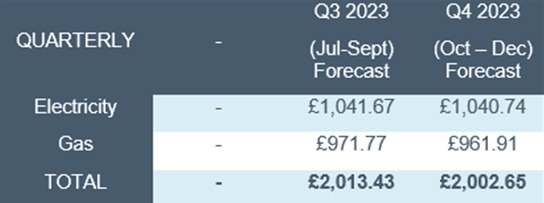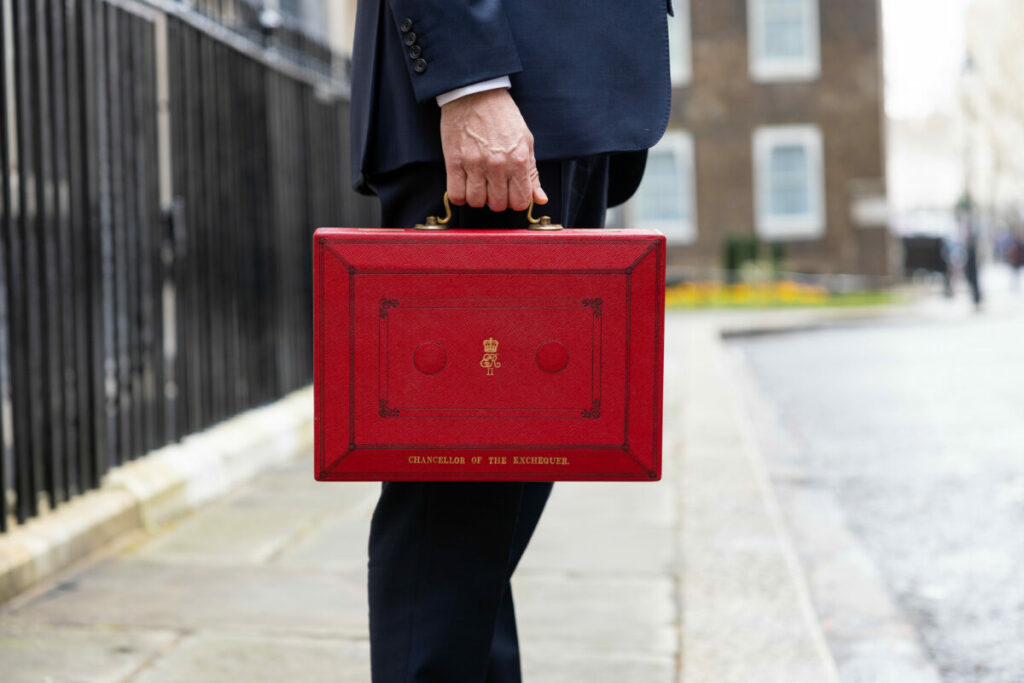The Energy Price Guarantee (EPG) will be kept at its current rate for an additional three months, fixing prices at £2,500 till the end of June.
Chancellor Jeremy Hunt is set to announce the move during his Spring Budget today, in a move that is expected to save the typical household £160 over the three months.
“We know people are worried about their bills rising in April, so to give people some peace of mind, we’re keeping the Energy Price Guarantee at its current level until the summer when gas prices are expected to fall,” said Prime Minister Rishi Sunak.
“Continuing to hold down energy bills is part of our plan to help hardworking families with the cost of living and halve inflation this year.”
The evolution of the EPG
The EPG was first brought in by then Prime Minister Liz Truss in October, capping domestic energy bills at £2,500 for a two year period. At this level it limits the cost of energy for those on a standard variable tariff to 34.0p/kWh for electricity and 10.3p/kWh for gas.
The EPG supersedes the Default Tariff Price Cap, with the government paying the difference between the two figures. Therefore, in October it stopped consumers being hit by the £3,549 cap for the Q4 period.
For the first three months of 2023 the Price Cap was set at £4,279, and has been set at £3,280 for April to June.
In his Autumn Statement, chancellor Jeremy Hunt announced that instead of running at the £2,500 level for two years, it would instead rise to a £3,000 cap for an typical household from April.
As such, consumers were expecting an increase to bills from next month, although still at a lower rate than the Price Cap would set without the EPG.
“High energy bills are one of the biggest worries for families, which is why we’re maintaining the Energy Price Guarantee at its current level,” said Chancellor Jeremy Hunt.
“With energy bills set to fall from July onwards, this temporary change will bridge the gap and ease the pressure on families, while also helping to lower inflation too.”
Together with the Energy Bills Support Scheme, the EPG is estimated to have saved the typical family over £1,300 on their energy bills since October. When factoring in today’s extension, this increases to around £1,500 up till July.
From July, the Price Cap is predicted to again fall to £2,013, bringing it below the EPG for the first time.

The cost of extension
Prior to the extension of the £2,500 rate, the government was expecting to borrow £12 billion to fund this EPG.
Since the Autumn Statement however – when the rise to £3,000 was announced – energy prices have fallen by 50%, reducing the needed borrowing to fund energy support by two- thirds to £4 billion.
Of the cost of the EPG from April to June, the additional cost of maintaining it at £2,500 rather than £3,000 accounts for £3 billion of the £4 billion.
In total, the governmental cost of the EPG is estimated at £29.4 billion.
Capping energy bills forms part of the government’s plan to halve inflation this year. In November, the Office for Budget Responsibility confirmed that the EPG would lower the peak rate of inflation.
“The announcement that the government will maintain the Energy Price Guarantee (EPG) at £2,500 has provided much-needed clarity for energy suppliers and no doubt relief for the many households who rely on the scheme to safeguard their finances from the volatile energy market,” said Dr Craig Lowrey, principal consultant at Cornwall Insight.
“While the government’s decision will come at an estimated additional cost of £2.6bn1 for the three months to July, Default Tariff Cap (price cap) predictions indicate that the EPG costs will be short-lived, as average bills are expected to drop well below £2,500 in the latter half of the year. It’s a small price to pay to protect already hard-hit households.”
Some consumers may still experience changes to their tariff from April, due to changes in the unit rates and standing charge’s which will be impacted by the Default Tariff Price Cap.
The Energy Bills Support Scheme – which offered households £400 over the course of six months – will come to an end at the end of April, meaning household energy bills will rise to sit in line with the EPG.
Low income and vulnerable households will receive additional support, with at least £900 in cash payments over the next year, helping to mitigate the impact of the still high energy prices.
“Putin’s illegal war has cost British families, which is why we’ve stepped in to pay around half of the typical household energy bill,” said Energy Secretary, Grant Shapps.
“With wholesale prices falling families will start to benefit, but in the meantime we’re stepping back in with the Energy Price Guarantee to prevent the typical electricity and gas bill exceeding £2,500. It’s just part of our plan to help families this winter.”
Within the Spring Budget, Hunt is expected to announce an end to the energy premium paid by households who use prepayment meters, which is estimated to save 4 million families £45 a year from July, as well as other measures.






